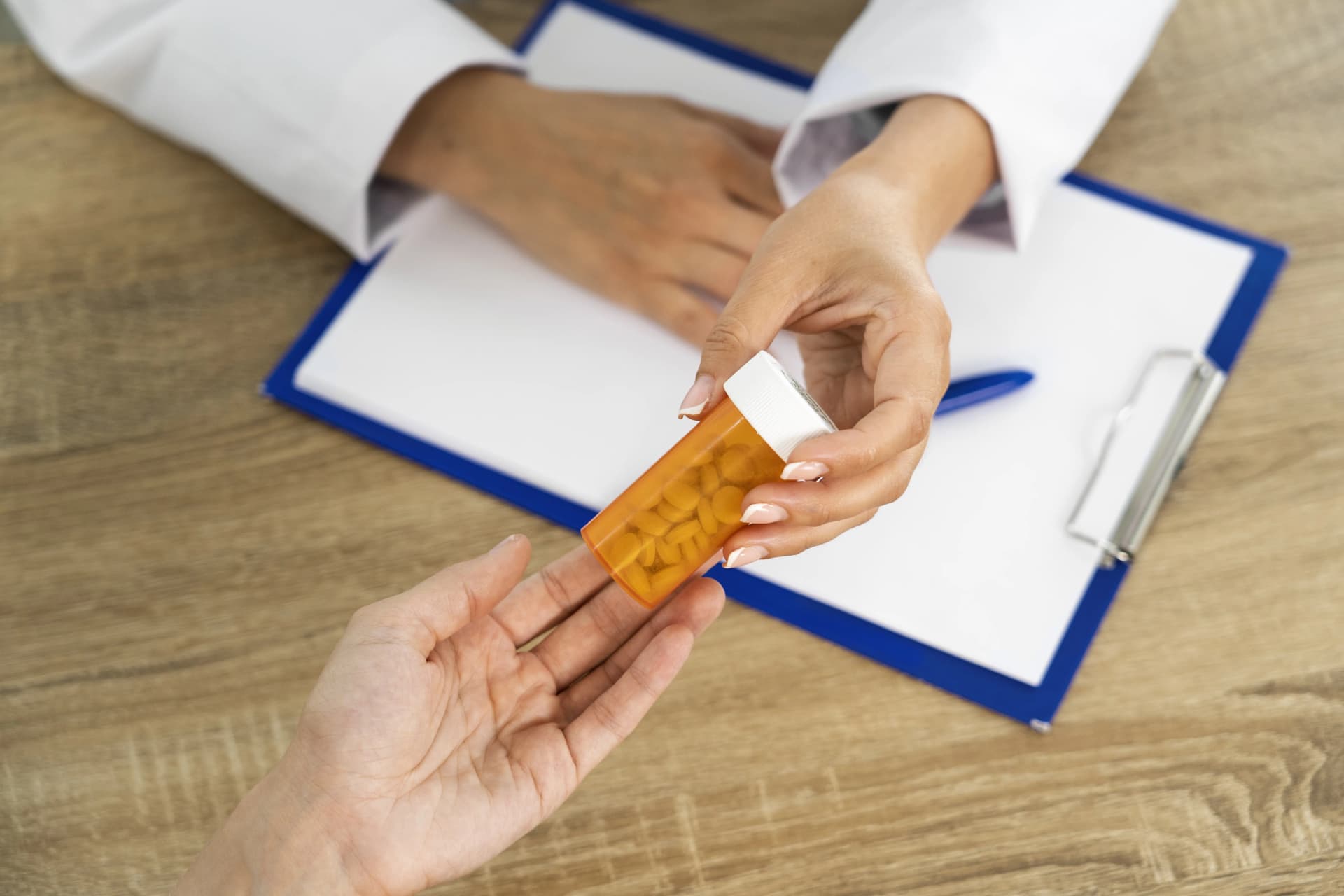How to Check for Drug Interactions Before Taking a New Medication

Starting a new medication—whether it’s prescription, over-the-counter (OTC), or a supplement—should always come with one important step: checking for drug interactions. At Farmington Drugs, we care about your safety and are here to help you understand how medications can work together—or interfere with each other.
This guide will show you how to identify potential drug interactions, why they matter, and how to stay safe every time you take something new.
What Are Drug Interactions?
A drug interaction happens when one medication affects how another works. This can change the way your body absorbs, processes, or eliminates a drug.
Drug interactions can:
-
Increase side effects
-
Decrease effectiveness
-
Cause unexpected health issues
These interactions can happen between:
-
Prescription medications
-
Over-the-counter products
-
Vitamins and supplements
-
Herbal remedies
Why Checking for Drug Interactions Matters
Even common or natural products can interfere with other medications. For example:
-
Aspirin can increase bleeding risk when taken with blood thinners
-
Calcium supplements can block the absorption of some antibiotics
-
St. John’s Wort can reduce the effectiveness of birth control pills
By checking for interactions ahead of time, you can avoid harmful effects and make sure your treatment works as intended.
When to Check for Drug Interactions
You should check for drug interactions any time you:
-
Start a new prescription
-
Add an over-the-counter medication or supplement
-
Switch to a generic or different brand
-
Change the dose or timing of a medication
-
Take medications prescribed by different doctors
How to Check for Drug Interactions
1. Talk to Your Pharmacist
Pharmacists are medication experts. At Farmington Drugs, our team can:
-
Review your current medications
-
Identify potential interactions
-
Suggest safer alternatives
-
Help you create a medication schedule
Tip: Bring a complete list of everything you take, including vitamins, herbs, and topical treatments.
2. Use a Trusted Drug Interaction Checker
Several reputable websites and apps offer free drug interaction tools. These let you enter all your medications and get instant results.
Recommended tools include:
-
Drugs.com Interaction Checker
-
WebMD Drug Interaction Tool
-
Medscape Drug Interaction Checker
Note: These tools are helpful, but they’re not a substitute for professional advice. Always confirm with your pharmacist.
3. Read Medication Labels and Inserts
Always read the labels, instructions, and warnings that come with your medication. Look for sections like:
-
“Drug Interactions”
-
“Warnings”
-
“Do Not Take With”
These sections list known issues and what to avoid.
4. Keep a Medication List
Create and update a list that includes:
-
Medication names and dosages
-
Why you take them
-
How often you take them
Keep this list with you for doctor visits and pharmacy consultations. Apps like Medisafe or MyTherapy can help you track this information.
Common Signs of a Drug Interaction
Some interactions are subtle, while others can be serious. Contact your pharmacist or doctor if you notice:
-
Unusual tiredness or weakness
-
Upset stomach, nausea, or diarrhea
-
Dizziness or confusion
-
Heart palpitations or changes in blood pressure
-
Rashes or allergic reactions
Never ignore side effects. Even if they seem minor, they may signal an issue with how your medications are working together.
Questions to Ask Your Pharmacist
When starting a new medication, don’t hesitate to ask:
-
Is this safe to take with my other medications?
-
Should I take this at a certain time of day?
-
Are there foods or drinks I should avoid?
-
What side effects should I watch for?
-
Can I take supplements or herbs with this?
At Farmington Drugs, we’re happy to answer your questions and help you feel confident about your treatment.
Extra Tips to Stay Safe
Use One Pharmacy
Filling all prescriptions at the same pharmacy helps us track your medication history and catch interactions early.
Keep Your Healthcare Providers Updated
Tell all your doctors about every medication and supplement you take—even those that seem unrelated.
Stick to Your Schedule
Take medications exactly as directed. Changing the time or dose can affect how they interact.
Store Medications Properly
Heat, light, and humidity can affect drug potency. Follow storage instructions on the label.
How Farmington Drugs Can Help
At Farmington Drugs, your safety is our priority. Our pharmacists:
-
Use advanced software to check for drug interactions
-
Provide one-on-one medication counseling
-
Help manage complex medication regimens
-
Offer safe supplement recommendations
Whether you’re starting something new or just want a second opinion, we’re here to support your health.
Final Thoughts
Checking for drug interactions is a simple but powerful way to protect your health. By being proactive, asking questions, and working with your pharmacist, you can avoid unnecessary risks and feel more confident about your care.
Visit Farmington Drugs today to speak with a pharmacist about your medications—or bring in your list and let us help you review it.
Smart choices today lead to safer treatment tomorrow.





